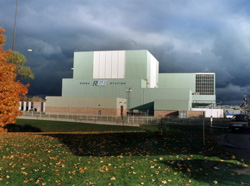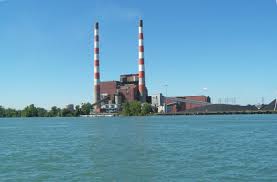A state appeals court decided that Commonwealth Edison must pay for the spoiled groceries and other costs that 35,000 of its customers suffered from a series of 2011 storms. The decision could set a precedent and force the company to pay in future cases.
The ruling upheld a 2013 decision by the Illinois Commerce Commission resulting from six summer storms and a blizzard in 2011. ComEd has said the decision could cost it up to $35 million in claims.
More: Chicago Tribune(subscription required)
Exelon Files Ginna Petition with NYPSC

The petition, filed in late July, indicates that the company will keep the 581-MW Ginna plant running if it gets a good enough power-purchase contract from Rochester Gas and Electric. An earlier study conducted by NYISO indicated that the plant was necessary for the continued reliability of the grid. Without that study, Exelon said, it would have considered shutting down the plant.
More: Power Magazine
New York May Force Indian Point Outages
Entergy’s Indian Point Nuclear Plant may be temporarily shut down by an order from the New York Department of Environmental Conservation in a move designed to protect fish populations.
The outages, which would affect both units, could be for 42, 62 or 92 days a year, the department has proposed. The outages would take place between May and August of each year during the plant’s 20-year license extension period.
Entergy Vice President of License Renewal Fred Dacimo said taking the units offline during peak energy consumption months would result in increased prices and could lead to blackouts. “All of these impacts might be worth considering if outages at Indian Point were actually necessary to protect fish eggs and larvae, but they are not,” he said. He said Entergy has proposed alternate methods to protect aquatic wildlife.
More: Nuclear Street
Bolts in Salem Failure Deemed Unsuitable in ‘84

The failure of the bolts, which were inside two reactor coolant pumps, was found during a scheduled offline period in April as the reactor underwent fuel replacement. PSEG announced in mid-May that the shutdown would be extended to fix the problem. The company restarted Unit 2 last month.
The manufacturer of the bolts, Westinghouse Electric, warned that parts loosened by bolt failures could have created a “substantial safety hazard” if they locked up rapidly spinning parts in one or more of the coolant pumps, according to NRC spokesman Neil Sheehan.
PSEG spokesman Joe Delmar said that Westinghouse issued a technical bulletin on the issue in 1996. The bulletin concluded that even if all bolts on a pump failed, “it would not affect the performance of the pump and, therefore, they did not recommend going in and replacing the bolts with others with different material unless you were going into the pump for another purpose,” Delmar said.
The NRC notified officials at Dominion’s Surry Units 1 and 2 reactors near Newport News, Va., of the problem. Surry is the only other plant to use the same “A-286” alloy bolts in coolant pumps. Dominion is reviewing reports from Salem “to evaluate a course of action going forward,” Sheehan said.
More: The News Journal
DTE Closing Down 2 Mich. Coal Units

“The decision was made because of new federal emissions regulations taking effect in the next few years, and because of DTE’s focus on reducing customers’ rates and maintaining competitive electric rates in the future,” DTE Randi Berris said.
More: The News-Herald


